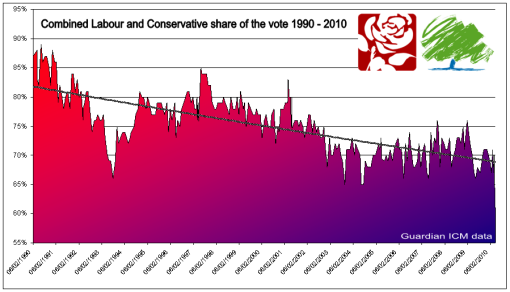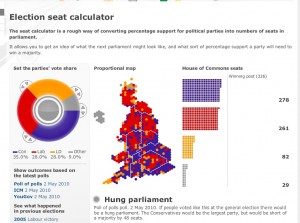Terrific rant by George Monbiot. Sample:
While Labour has liberated billionaires, it has trussed up the rest of us with 3,500 new criminal offences, including provisions that allow the police to declare any demonstration illegal. It has introduced control orders that place people under permanent house arrest without charge or trial. It has allowed the US to extradite our citizens without producing evidence of an offence. It has colluded in kidnapping and torture. Britain now has more CCTV cameras than any other nation, and a DNA database that is five times the size of its nearest competitor. The number of prisoners in the UK has risen by 41% since Labour took office.
This government blocked a ceasefire in the Lebanon; sacked Britain’s ambassador to Uzbekistan after he complained that the regime was boiling its prisoners to death; gave aid to a Colombian military that collaborates with fascist death squads; announced a policy of pre-emptive nuclear war; and decided to waste our money on replacing Trident. But worse, far worse than any of this, it launched an illegal war in which hundreds of thousands have died. This is the government that colleagues of mine on the Guardian want to save.
There’s a parasite called Toxoplasma gondii that colonises the brains of rats, altering their behaviour to attract them to the scent of their predators. The rats seek out cats and get eaten, allowing the parasite to keep circulating. This is New Labour. It has colonised a movement that fought for social justice, distribution and decency, rewired its brain and delivered it to the fat cats who were once its enemies.
Yep. But it still leaves me with the problem of who whom to vote for.
Footnote: Toxoplasma gondii



